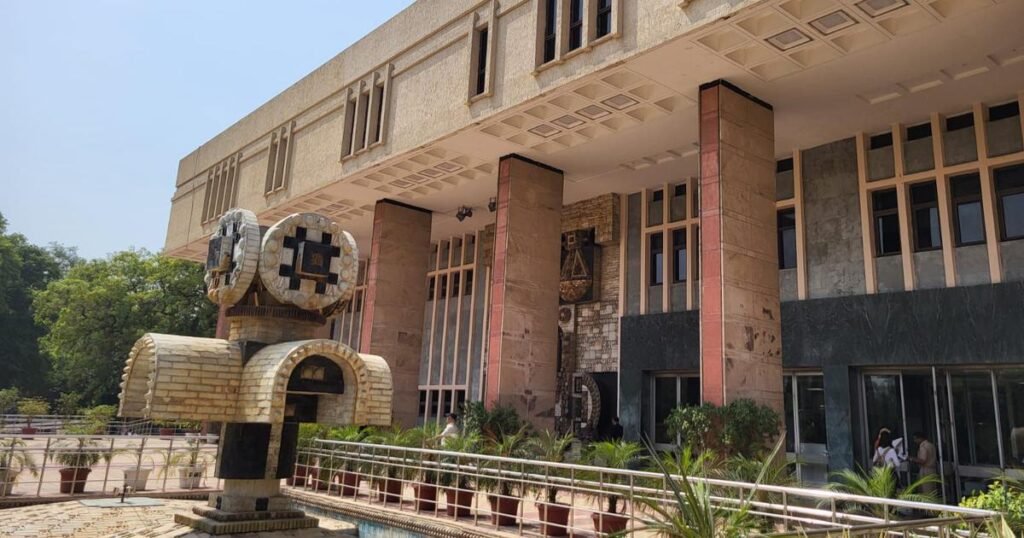In a shocking development, an Indian woman has been executed in the United Arab Emirates (UAE) after being convicted for the alleged murder of an infant. The Indian government has officially confirmed the execution to the Delhi High Court, sparking discussions on diplomatic interventions, legal procedures, and the fate of Indian nationals facing capital punishment abroad.
Case Background
The woman, whose identity has not been disclosed, was reportedly convicted of killing an infant in the UAE. Details regarding the case, including the circumstances of the crime, the trial proceedings, and the evidence presented, remain scarce. However, it has been confirmed that she was sentenced to death following legal proceedings in the UAE’s judicial system.
Government’s Response
The Indian government, through its legal representatives, informed the Delhi High Court about the execution in response to a plea filed by the woman’s family. The plea had sought diplomatic intervention and legal assistance to commute the death sentence or secure clemency for the accused.

Despite efforts by Indian authorities to engage with their UAE counterparts, the execution was reportedly carried out in accordance with the country’s legal framework. The Ministry of External Affairs (MEA) has yet to issue a detailed public statement but has assured that the government closely monitored the case.

Legal and Diplomatic Implications
The execution raises several legal and diplomatic concerns, particularly regarding:
- Fair Trial and Legal Representation: Questions remain about whether the accused had access to adequate legal representation and whether due process was followed.
- Diplomatic Channels and Clemency Appeals: While India has strong diplomatic ties with the UAE, it remains unclear to what extent diplomatic intervention was attempted or whether any formal clemency plea was submitted.
- Rights of Indian Nationals Abroad: The case highlights the need for robust mechanisms to ensure Indian nationals accused of crimes abroad receive fair trials and proper legal aid.
Reactions from Human Rights Groups and Legal Experts
Human rights organizations have expressed concern over the execution, urging the Indian government to enhance its efforts in protecting its citizens facing capital punishment overseas. Some legal experts argue that the case underscores the importance of negotiating agreements with foreign nations to facilitate legal assistance and repatriation for Indian nationals accused of serious crimes.
Family’s Plea and Legal Recourse
The woman’s family has reportedly expressed shock and devastation over the execution. They had previously appealed to the Indian government for intervention and are now seeking further clarification on the timeline of legal proceedings and diplomatic engagement.
In the wake of this execution, legal experts suggest that affected families should be provided with greater support in navigating international legal challenges. Additionally, calls for reviewing existing policies on legal assistance for Indians abroad have gained momentum.
India-UAE Relations and Future Implications
India and the UAE share strong bilateral ties, with significant economic and diplomatic collaborations. However, cases involving capital punishment and legal proceedings against Indian nationals in the UAE have occasionally caused diplomatic sensitivities.
The execution could influence future discussions on extradition, prisoner transfer agreements, and legal aid mechanisms. Ensuring better legal assistance and timely diplomatic engagement for Indian citizens abroad remains a key area for further policy development.
Conclusion
The execution of an Indian woman in the UAE for the alleged murder of an infant has raised critical questions about legal representation, diplomatic interventions, and the treatment of foreign nationals within the UAE’s legal framework. While the Indian government has confirmed the execution, further clarity is needed on the extent of its intervention and the measures taken to ensure due process.
As discussions continue, the case highlights the need for stronger bilateral legal frameworks to protect Indian nationals abroad and prevent similar incidents in the future. The demand for increased transparency and legal support for Indians facing capital punishment overseas is likely to remain a significant concern in diplomatic and human rights circles.
Do follow Uae stories for more Updates
UAE Launches National Program to Promote Sustainable Agriculture Practices













